On our first sail up Core Sound, Bruce and I were caught by this fast moving but small storm. It was a typical summer squall - heavy rain and some wind for a few minutes, then gone. I noted in my logbook that we were just off of Rumley Bay, never giving a thought as to why the little bay, and the adjacent hammock, carried the name "Rumley."
My understanding of Carolina had been limited to vague stories about The Lost Colony on Roanoke Island and Blackbeard's death at Ocracoke. Beyond that I knew almost nothing. It was Bland Simpson, with his book the inner islands, A Carolinian's Sound Country Chronicle, who caught my interest and led me to devote much of my winter's reading to Carolina history.
Simpson's chronicles, a personal and very lyrical examination of island communities in the Sounds from colonial times to the 1950's, is a rich book that I have mentioned before. He takes remote, unpopulated islands, many of which I have sailed past, and brings back the history of communities, fishing, and farming that was so important to the coast. Along the way Simpson references a couple of other historians, and they each have books well worth reading.
David Beers Quinn's Set Fair for Roanoke reaches back to the early explorations of the Carolina and Virginia coasts. The book looks at early explorations by the Spanish and English, both on the coasts and throughout the Sounds. Quinn has the most detailed description of the Native American tribes in the area and explores the interactions, some peaceful and some not, between the cultures. There is so much in this book that I cannot easily describe it. From the machinations of the English court to the changing geography of the barrier islands (inlets that have not existed for hundreds of years played crucial roles), it is a fascinating story that I will keep on my bookshelf.
Historian David Ceceliski has two books out on Carolina coast history; The Waterman's Song, Slavery and Freedom in Maritime North Carolina and A Historian's Coast, Adventures into the Tidewater Past. Though a scholarly book, The Waterman's Song reads like a rich novel about slaves and free African Americans from colonial times to the mid-1900's. They were fishermen, boat pilots and schooner captains. They seined for fish, tonged oysters and used their hands to dig canals through thick, snake infested swamps in both the heat of the summer and cold of the winter. The civil war is prominent, as are the interactions with free blacks sailing on foreign ships that came to Carolina ports. It is, like all the books I am mentioning here, a wonderful book that changes the way I look at the water I sail.
The Historian's Coast is Ceceliski's more personal look at history. He sets the tone perfectly with his dedication at the beginning of the book - "To my mother, who taught me to love books. And to my father, who taught me to love boats." This book is a series of essays on the coast originally written for Coastwatch magazine, a publication by the North Carolina Sea Grant program. It is, like Simpson's inner islands, a mixture of history and personal experience. I am already looking forward to reading it again.
While reading Ceceliski's Waterman's Song I came across a man named James Rumley. He was a racist, a confederate sympathizer and, fortunately for historians, a diarist. His entries, written during the occupation of Beaufort by Federal troops during the civil war, play an important part in Ceceliski's book as he describes white southerners who suddenly had to deal with free blacks. Is his Rumley connected to Rumley Bay and Rumley Hammock? I will probably never know. But next time I sail on the Sounds of North Carolina I will be much more aware of the history around me.
steve










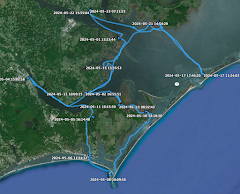
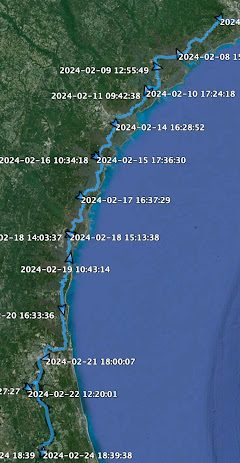

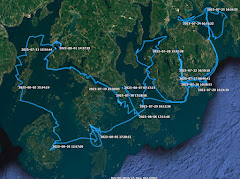

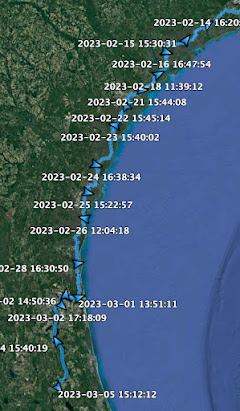

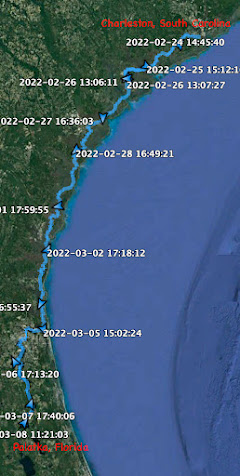
























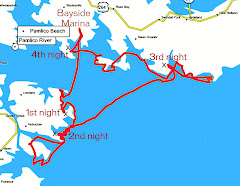


1 comment:
Great books. I have all but Quinn's. We are lucky in North Carolina to have so many good historians and memoirists writing about our coast.
Post a Comment